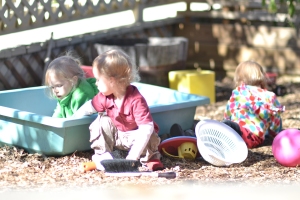Putting out the Elf on the Shelf
- Lodge Talk

- Dec 6, 2011
- 4 min read
It can’t be just me- that Elf on the Shelf is just a bit scary, no?
And what a tattle tale.
There’s Santa at the North Pole in crunch time. By now he’s already checked his list twice and he’s moving on to wrapping and loading the sleigh.
But first, he has to deal with these CONSTANT interruptions by his American elf helpers.
This child didn’t eat all her peas…This little boy didn’t want to share his truck…or maybe they didn’t brush their teeth…. Come on- we already knew that and have reserved the bags of coal accordingly. “It’s GO! time!” an exasperated Santa must be thinking, “Don’t these elves have something better they can be doing?”
The history of the Mother/Daughter Trio who wrote, self-published and marketed this new family tradition is indeed amazing and inspirational, so before you worry- I’m not about to entirely knock the Elf totally off the Shelf.. I’m all about FAMILY TRADITIONS be it tried and true or new to you- especially during the holidays. These yearly rituals are a part of our social fabric that marks each family as unique while also celebrating our connectivity.
And while the story of the Elf on the Shelf seems harmless enough- its implementation by some well-intentioned adults as a form of behavior modification does have potential for some long-range ramifications.
Consider what the early childhood developmental theorists observed about motivation and what current brain research now concludes: extrinsic incentives may work in the short run, but over time, they actually interfere with the very behaviors adults are working to promote. Not to mention, they can cause a child to disengage from her own method of learning- which, yes, involves testing limits- to hide her authentic self. The mask gets put on.
And that Elf in particular- hiding, lurking, always watching- reporting back- is that truly the emotional climate we want to train our young children to expect in their own homes?
Things at the school seemed to be status quo without the Elf, so I asked Head of School, Megan Nordoff, how she was faring at home during the holidays with her own young children and what she thought of Elf on the Shelf.
“I sometimes feel that I’ve given birth to a pair of little monsters when I get home,” she said half jokingly. “Parents are often surprised to discover that I also face many of the same challenges at home as a Mom with setting limits and following routines while at the same time adjusting for spontaneous moments and holiday activities breaking from the norm.”
Megan concurred that based on the stories shared by the children in her care from two years through Kindergarten, that when used to direct a child’s behavior, the Elf seemed to be more beneficial as a band-aid perhaps quickly stopping a temporary flow of noncompliance and attributed its rise as a new holiday tradition contrived from commercialism and consumerism fueled by an unrelenting advertising and media campaign. Used as a way to control your child’s behavior, The Elf robs your child the opportunity to “behave” for the common good- to learn to control his own impulses and will in order to collaborate towards to common good of society- a process of learning that takes all of his efforts this first six years of his life.
As things begin to unravel at home as they often do during what can be an over-stimulating holiday season, Megan has invested in some pre-planning to help avoid a stressful meltdown. They include:
building in unscheduled time at home at least once a week when nothing is planned
starting bedtime routines a bit earlier and lengthening them to ensure little ones get to bed on time
keep diets balanced – limiting holiday sweets to earlier in the day- and drinking lots of water
make a holiday tradition with project oriented, hands on activities such as cookie making or gingerbread house building rather than screen time
find something you can all do together to celebrate this time of year and when limits are tested, take them as learning opportunities to instill long-range family values
care for yourself! Have you been on a date lately? Need a little pampering? During this time of year, adults often forget to take time alone or with their partner to refuel.
These added measures proactively help Megan’s family avoid misbehavior often resulting when physical needs are not met or due to overstimulation. And, in the event that redirection is in order, Megan feels better prepared herself being refueled to take TIME IN, be fully present, and help guide her children socially and emotionally through a learning opportunity. For it to be COOPERATION it must be a request- coercion and demands provide little of the required scaffolding necessary for young children to learn pro-social skills often reflected upon as ‘being good.”
Will Ms. Megan be getting an Elf on the Shelf for her family for the holiday season? “I’ve learned that as a parent never to say ‘I never…’, but right now there doesn’t seem to be room for it on our mantle.”

“The prize and the punishment are incentives towards unnatural or forced effort, and therefore we cannot speak of the natural development of the child in connection with them.” Dr. Maria Montessori
.png)



Comments